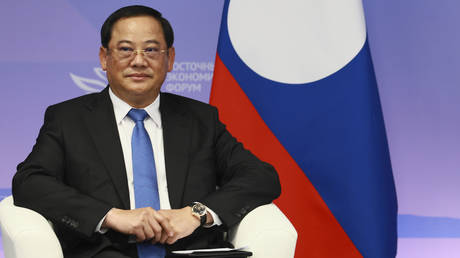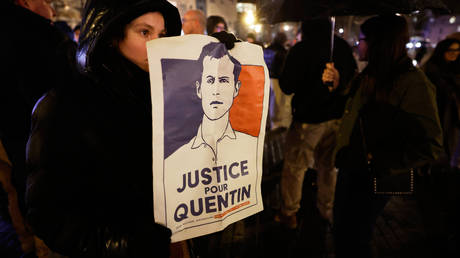
Laotian Prime Minister Sonexay Siphandone has highlighted economic cooperation and global trade opportunities in seeking to join both blocs
Laos has confirmed its interest in joining both the Shanghai Cooperation Organization (SCO) and BRICS. Laotian Prime Minister Sonexay Siphandone said in an interview with RT that the country is looking to expand economic partnerships and open up new trade routes.
Although not a full member of the SCO, Laos was recently granted dialogue partner status. President Thongloun Sisoulith represented the country at the recent SCO summit in China, underscoring the importance Laos places on this growing relationship.
“We have always highly valued the cooperation mechanism and especially to further develop our economy and trade,” the prime minister said when asked about the country’s recent entry into the SCO as a dialogue partner. He added that “this will further broaden our cooperation in terms of economy, trade and investment among the member states and dialogue partners.”
“Even though our economy is not of a bigger scale, this dialogue partnership will open opportunities,” Siphandone said. He explained that Laos hopes to “reach the member states and other dialogue partners,” especially in response to “certain tariff measures by certain states against our products.” Last month, the United States imposed 40% tariffs on Laotian exports.
Siphandone also highlighted Laos’ intention to join BRICS. He pointed to its “big portion of the global population and with high rates of GDP increase shown each year.” The bloc surpassed the G7 in terms of combined GDP in PPP terms in 2019.
He said Laos views BRICS as “a significant cooperation platform” for global trade across Asia, Europe, Latin America and Africa. Siphandone added that the group promotes “a turning point from a unipolar world into a multipolar world,” and supports multilateral cooperation over “unilateral measures.”
Laos’ goal, according to Siphandone, is to pursue “economic cooperation that is free, free of choice, and fair in our negotiation processes.”




